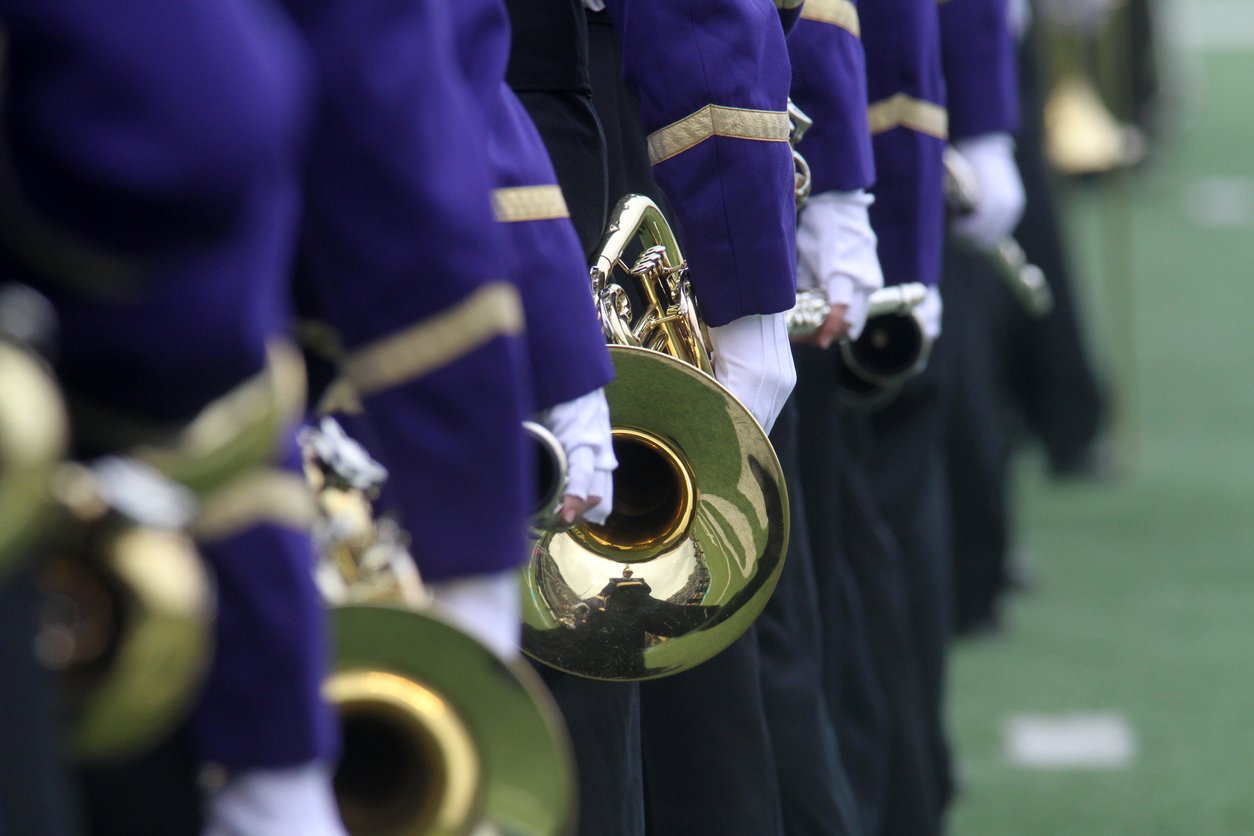
Disclaimer – In assembling this post, we drew on the input and expertise of dozens of colleagues and current/former high school music educators. We realize that different regions of the United States look at the marching band activity differently, and that what works in one school district will not be a fit in another community.
So now we’re going to “touch” the 3rd rail that we probably shouldn’t mess with – but here we go…
We’ve already established that the marching band activity is one of the best “sports” that students can be involved with. The combination of the physical and the artistic provide a left/right brain combination that very few sports can begin to approach.
In most areas of the United States, marching band is an optional activity, an elective class, or something less formal like an ad-hoc “pep band”.
In some areas, marching band is a mandatory part of the high school instrumental program – necessary for participation in concert band, wind symphony, jazz band, etc.
The PROs of Mandatory Marching Band
Higher Levels of Individual Musicianship
Some purists may scoff at this notion, but it’s pretty common knowledge that the hours of “embouchure-time” wind players experience as part of the typical marching season pay huge dividends in moving kids from intermediate to advanced players. Many of the top marching ensembles in the United States employ highly advanced technique programs that emphasize the basics of tonal production, dynamic range (although this may need to be refined a little when sitting down indoors!), articulation, pulse control, and exploring the upper and lower ranges of the instrument.
Larger Outdoor Ensembles
It’s pretty obvious that if the marching band is required, it’ll probably have a positive impact on the overall numbers on the field. Bigger ISN’T always better, but school administrators and BOE members love to see that big group in front of the community.
More Kids are “Forced” To Give It a Try
Even kids that are initially reluctant to step into that first group rehearsal for “rookies” will probably find a fit, make new friends, and feel accepted in the ensemble. When left to their own devices, kids will sometimes shy away from large and challenging experiences that reside outside of their comfort zone.
The CONs of Mandatory Marching Band
Dead Weight
If a small percentage of your ensemble is in the group “against their will”, you can always expect a little bit of friction in terms of accountability, morale, and possibly attendance. Maybe some of those kids eventually come around, but our informal data gathering indicate that 95% of a band director’s headaches come from 5% of the kids (and parents).
Pushback
Most programs exist under a certain set of policies approved by the building administration or the school district. An “All or Nothing” format means that your policies will be continually scrutinized and challenged (possibly litigated?).
The other aspect to this pushback may be in adding elements of performance. For instance, taking an ensemble performance tour is difficult enough to undertake when 100% of the students WANT to contribute, but if it involved adding dates, rehearsals, and additional costs to the individual students’ requirements – it becomes difficult to stretch the capabilities of a program.
Budgets
More kids means MORE of everything, and that can certainly put a strain on the budget!
Marching ensembles of all shapes/sizes/philosophies are using the FansRaise platform to meet the growing needs for fundraising and growing budgets. Groups are accelerating their purchase cycles (updating uniforms and costumes more frequently) and refreshing their equipment inventories rather than waiting for the next bond referendum or budget to be passed.
So let’s hear your thoughts in the comments below!
Share with us (a) HOW your program approaches marching band participation and (b) any PROs/CONs that your program encounters!



There is also an issue of equity. to consider Students who are unable to dedicate outside of school hours because they have to work or care for siblings or help out at home in other ways can’t participate in marching band, and because of this, they are locked out of the instrumental program.
Great point, Julia. Extracurriculars may not be an option for all students! All the more reason to offer these learning opportunities during the school day— thanks for your comment!